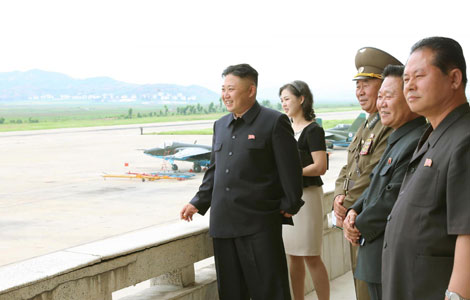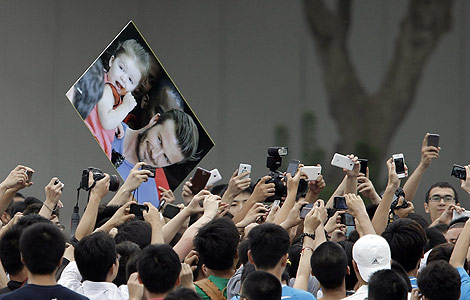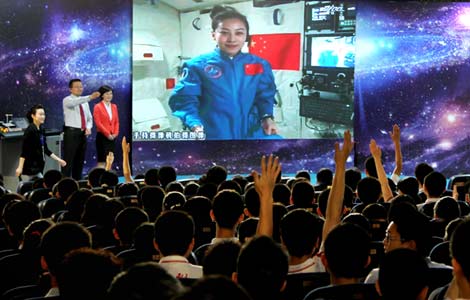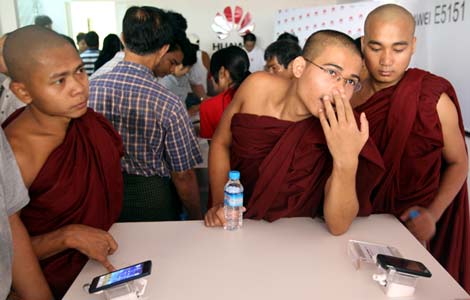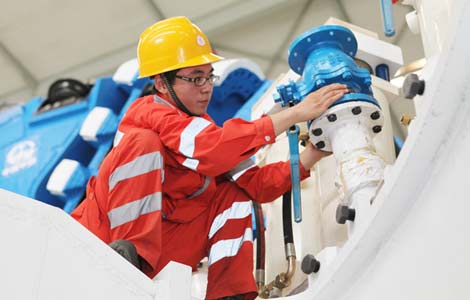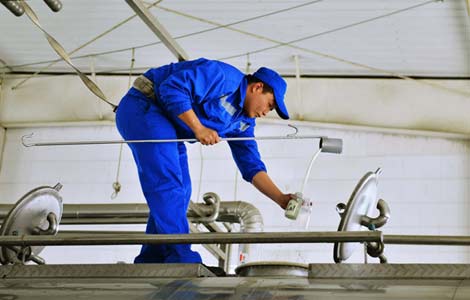Learning from space
Updated: 2013-06-21 07:05
(China Daily)
|
||||||||
While offering them a rare opportunity to learn about the science of space travel, a special lesson hundreds of Chinese students received on Thursday from a teacher orbiting the Earth in the Tiangong-1 module is also expected to ignite more interest among young people in China's booming aerospace cause.
In an interactive lecture delivered to more than 330 middle school students gathered at a classroom of the High School Affiliated to Renmin University of China in Beijing, astronaut Wang Yaping conducted various experiments, including the movements of objects and the surface tension of a liquid in a micro-gravity environment, to help them better understand weight, mass and Newton's laws. About 60 million teachers and students from 80,000 schools nationwide watched the lecture, which was broadcast live.
As part of the Shenzhou X mission, which blasted off on June 11 to begin China's fifth and most ambitious manned space mission, the science lesson to youngsters, the first of its kind by a Chinese astronaut, was an important part of the country's space program as it is a key step that brings it closer to the lives of ordinary people.
It made China the second country to have successfully delivered a lesson to schoolchildren from space. The first lesson, in which she showed students how to exercise and drink water in space, was conducted by US astronaut Barbara Morgan from the International Space Station in 2007. Following Morgan's televised lesson, more people in the United States expressed an interest in space exploration and their willingness to support the huge budgets involved.
In the same way, the interactive lesson between students in China and a teacher more than 300 kilometers above the Earth's surface was vivid proof that the nation's space missions are no longer something beyond the lives of ordinary people. The greater enthusiasm and interests in space exploration it is expected to spark among Chinese youngsters will foster more lovers of space travel and thus offer a solid foundation for the country's future space missions.
The sophisticated space science and technologies that will be developed by China as its space program progresses, as well as those that have already been employed, will also be forcible drivers of the country's further economic and social development.
(China Daily USA 06/21/2013 page15)
Most Viewed
Editor's Picks

|

|

|

|

|

|
Today's Top News
China slams US human trafficking report
China urges resumption of six-party talks
SEC charges China-based firm with fraud
Bank of China denies monetary default report
Snowden's future hangs in balance
China reiterates support for the UN
Dairy measures start at source
June PMI signals weakness
US Weekly

|

|


